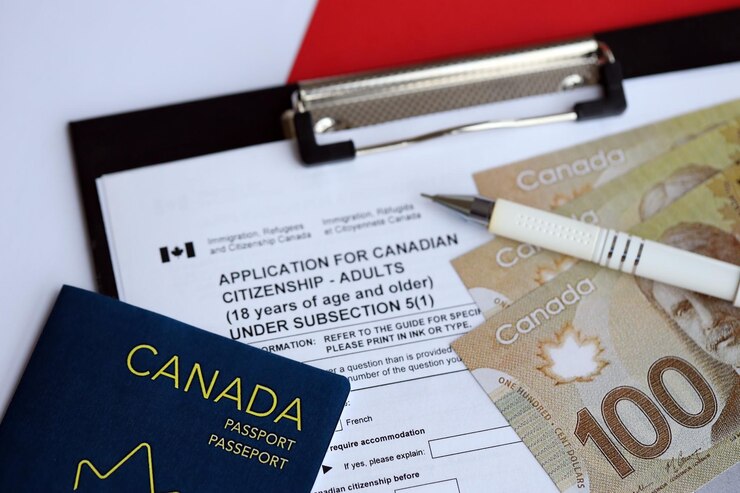Canada, with its vast landscapes, multicultural cities, and friendly people, is a popular destination for tourists from around the world. Whether you’re planning to explore the vibrant city life of Toronto, the stunning natural beauty of Banff National Park, or the historic charm of Quebec City, it’s crucial to understand the rules regarding the length of your stay as a visitor. This guide will walk you through everything you need to know about how long you can stay in Canada as a visitor, ensuring your trip is enjoyable and hassle-free. Stay in Canada as a Visitor
Understanding Your Visitor Status
As a general rule, most visitors can stay in Canada for up to six months. However, the exact duration of your stay will be determined by the Canada Border Services Agency (CBSA) officer at the port of entry. Here’s how the process works:

Entry at the Port of Entry
Upon arriving in Canada, you will be greeted by a CBSA officer. This officer will review your travel documents and ask you some questions about your visit. Based on your responses and the documents you provide; the officer will decide how long you are allowed to stay in Canada.
Stamp in Your Passport
The officer may stamp your passport and indicate the date by which you must leave Canada. This date is usually six months from the date of your entry. However, the officer may allow you to stay for a shorter or longer period, depending on your circumstances.
No Stamp in Your Passport
If you do not receive a stamp in your passport, it typically means you are permitted to stay in Canada for six months from the date you entered or until your passport expires, whichever comes first. If you are unsure, it is always best to confirm with the officer before leaving the immigration area.
Requesting a Stamp
If you need a stamp in your passport, perhaps for personal records or future reference, you can request one from the CBSA officer. If you are arriving at an airport that uses primary inspection kiosks, you can ask for a stamp after completing the kiosk process.
Extending Your Stay in Canada
Extending your stay in Canada requires careful planning and adherence to immigration regulations. Start by applying well before your current status expires. Determine eligibility by checking your visa type and ensuring compliance with conditions like employment or study. Gather necessary documents such as passport, proof of funds, and a letter detailing reasons for extension. Complete application forms accurately, and pay required fees. If approved, a new permit will be issued. Understanding rules, preparing thoroughly, and applying early are crucial for a smooth extension process in Canada.

Step 1: Apply for an Extension
You should apply for an extension at least 30 days before your authorized stay expires. To apply for an extension, you will need to:
- Complete the application form IMM 5708.
- Provide your passport details.
- Include proof of financial support for your extended stay.
- Provide a detailed explanation of why you wish to extend your stay.
Step 2: Submit Your Application
Submit your application online through the Immigration, Refugees and Citizenship Canada (IRCC) website. Ensure that all the required documents are uploaded and the application fee is paid.
Step 3: Wait for a Decision
After submitting your application, you will need to wait for a decision from IRCC. Processing times can vary, so it is advisable to apply well in advance of your planned departure date.
Step 4: Stay Legally
While your application is being processed, you can remain in Canada under what is known as implied status. This means you can stay in Canada until a decision is made on your extension application, even if your initial authorized stay expires during this time.
Tips for a Smooth Visit to Canada
- Carry All Necessary Documents: Ensure you have all necessary documents, such as your passport, visa (if applicable), proof of funds, and travel itinerary.
- Be Honest with the CBSA Officer: Answer all questions truthfully and provide any documents requested by the officer.
- Know Your Rights: Understand your rights as a visitor and the conditions of your stay.
- Plan Ahead: If you plan to extend your stay, start the process early to avoid any last-minute issues.
Conclusion: understanding the duration of stay as a visitor in Canada is essential for compliance with immigration laws. While typically allowed up to six months upon entry, individuals should be mindful of their specific visa conditions and seek extensions when necessary. Planning ahead, adhering to regulations, and staying informed about eligibility criteria for extensions ensure a smooth and lawful stay in this diverse and welcoming country.
Contact Us: Navigating visa regulations can be complex and sometimes overwhelming. If you have any questions about your visitor status, need help with your visa application, or are considering studying or working in Canada, our team of experts is here to help. Contact us today for free expert advice on study visas, tourist visas, work permits, and more. Let us help you make the most of your Canadian adventure!

Disclaimer:
The information provided in this blog post is for general informational purposes only and does not constitute legal advice. While we strive to keep the information up to date and correct, we make no representations or warranties of any kind, express or implied, about the completeness, accuracy, reliability, suitability, or availability with respect to the information provided. For professional advice specific to your situation, please consult with a qualified immigration consultant or legal expert.
- The Rise and Challenges of Canada’s Temporary Foreign Worker Program
- Comprehensive Guide to Canada’s Express Entry Draw Results and the Provincial Nominee Program
- How has the Canada Citizenship Scheme changed over the years?
Also read:
- Top 10 Trusted Immigration Consultants in Jalandhar for Study, PR & Visitor Visas (2025)
- The Comprehensive Guide to Express Entry: Who Can Apply for Immigration to Canada?
- Canada Immigration Fees Increased Effective December 2024: Key Updates You Must Know!
- How Long Can I Stay in Canada as a Visitor?
- In-Depth Guide to Finding Part-Time Jobs in Canada















